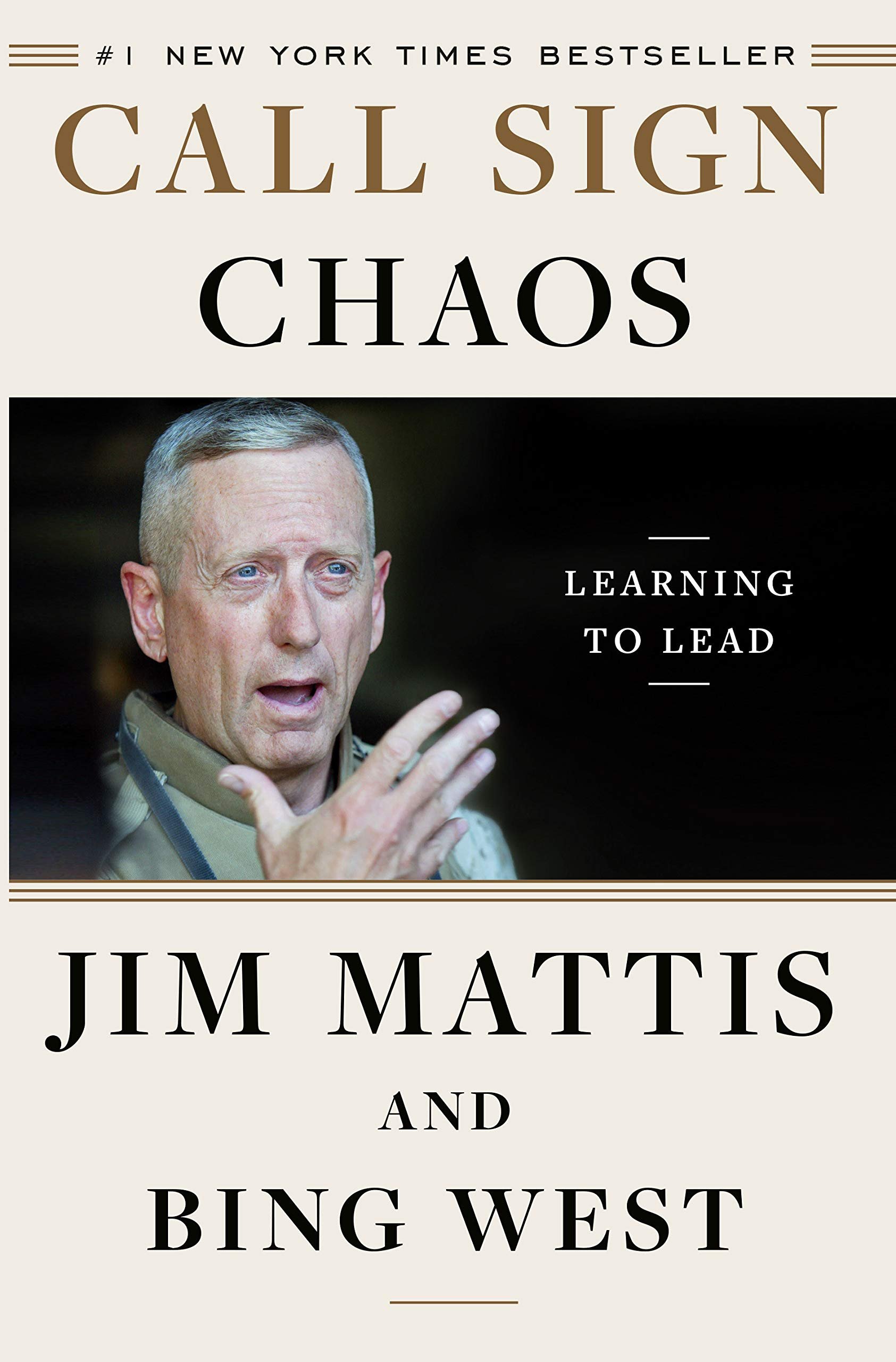Call Sign Chaos – by Jim Mattis
Date read: 5/16/22. Recommendation: 9/10.
Tremendous book on leadership and what it takes to lead in a chaotic world. Mattis details lessons learned from more than four decades serving in the Marine Corps. He pulls from a wealth of personal and vicarious experience and structures the book around leadership in three distinct capacities—direct leadership, executive leadership, and strategic leadership. Cover to cover there are useful lessons on building exceptional teams, getting the foundation right, relentless preparation, commander’s intent, a bias towards action, and managing up. I would highly recommend this for any managers and those looking to hone their own leadership skills.
See my notes below or Amazon for details and reviews.
My Notes:
Building teams:
“The two qualities I was taught to value most in selecting others for promotion or critical roles were initiative and aggressiveness.” JM
“When tasked with supporting other units, select those you most hate to give up.” JM
General Ulysses S. Grant’s criteria for leaders: humility; toughness of character, so one is able to take shocks in stride; and the single-mindedness to remain unyielding when all is flying apart but enough mental agility to adapt when their approach is not working.
“If you can’t talk freely with the most junior members of your organization then you’ve lost touch.” JM
Foundational skills:
You must have done the thing you’re training others to do if you want respect. If you shortcut this through promotions you haven’t earned, it will come back to haunt you. “Every Marine is first and foremost a rifleman and must qualify on the rifle range. Lieutenants learn that everything they will go on to do in the Corps, no matter the rank or the job, relates back to the private who is attacking the enemy.” JM
“Be brilliant in the basics. Don’t dabble in your job; you must master it.” JM
“As an officer, you need to win only one battle—for the hearts of your troops. Win their hearts and they will win the fights.” JM
Learn the basics so well they become second nature: “We all knew one another’s jobs so well that we could adapt to any surprise. My intent was to rehearse until we could improvise on the battlefield like a jazzman in New Orleans. This required a mastery of instruments of war, just as jazz musician master his musical instrument.” JM
Commander’s intent:
Aggressively delegate tasks to the lowest capable level. Decentralize decision making.
Bias towards action: “Because a unit adopts the personality of its commander, just as a sports team adopts the personality of its coach, I made my expectation clear: I wanted a bias for action, and to bring out the initiative in all hands.” JM
“Do not bog down once in the attack. If one thing isn’t working, change to another. Shift gears. Don’t lose momentum. Improvise.” JM
“Operations occur at the speed of trust.” JM
Mistakes versus lack of discipline: “There’s a profound difference between a mistake and a lack of discipline. Mistakes are made when you’re trying to carry out a commander’s intent and you screw up in the pressure of the moment…A lack of discipline is not a mistake.”
Bias towards action:
Move with conviction, ambiguity and flip-flopping kills morale. Perspective from war in Iraq (Fallujah): “First we’re ordered to attack, and now we’re ordered to halt. If you’re going to take Vienna, take fucking Vienna.” JM
Resourcefulness: “Any planning construct that strives to provide mechanistic certainty is at odds with reality, and will lead you into a quagmire of paralysis and indecision. As economist Friedrich Hayek cautioned, ‘Adaptation is smarter than you are.’ The enemy is certain to adapt to our first move. That’s why in every battle I set out to create chaos in the enemy’s thinking, using deception and turning faster inside his decision loop, always assuming that he would adapt.” JM
Reading:
“If you haven’t read hundreds of books, you are functionally illiterate, and you will be incompetent, because your personal experiences alone aren’t broad enough to sustain you.” JM
“History teaches that we face nothing new under the sun.” JM
Never allow yourself to be unprepared:
“To each there comes in their lifetime a special moment when they are figuratively tapped on the shoulder and offered the chance to do a very special thing, unique to them and fitted to their talents. What a tragedy if that moment finds them unprepared or unqualified for that which could have been their finest hour.” Churchill
“Mastering your chosen vocation means you are ready when opportunity knocks.” JM
When a Marine has survived three fire fights, his chances of survival improve exponentially. During his time at the Marine Corps Combat Development Command (MCCDC) in Quantico, Virginia, Mattis pioneered simulators to train and sharpen cognitive skills until young leaders could swiftly appraise situations without hesitating before taking action.
“Initiative has to be practiced daily, not stifled, if it’s to become a reality inside a culture. Every institution gets the behavior it rewards.” JM
Managing up:
“When you are engaged at the tactical level, you grasp your own reality so clearly it’s tempting to assume that everyone above you sees it in the same light. Wrong. When you’re the senior commander in a deployed force, time spent sharing your appreciation of the situation on the ground with your seniors is like time spent on reconnaissance: it’s seldom wasted.” JM
Problem solving:
The credit belongs to the man in the arena: “A leader’s role is problem solving. If you don’t like problems, stay out of leadership. Smooth sailing teaches nothing.” JM

